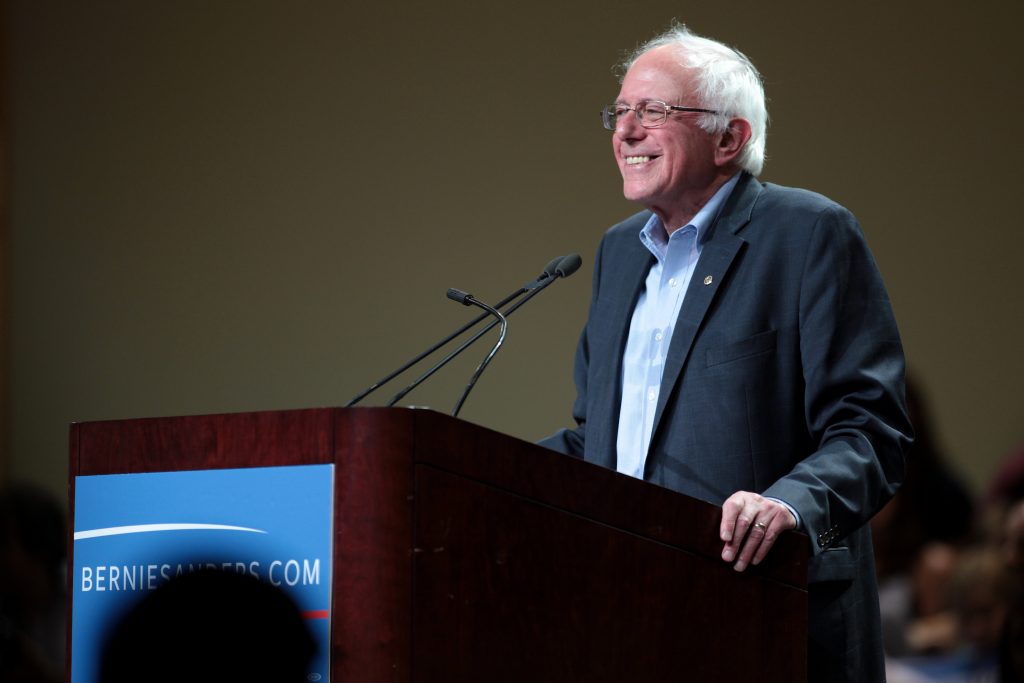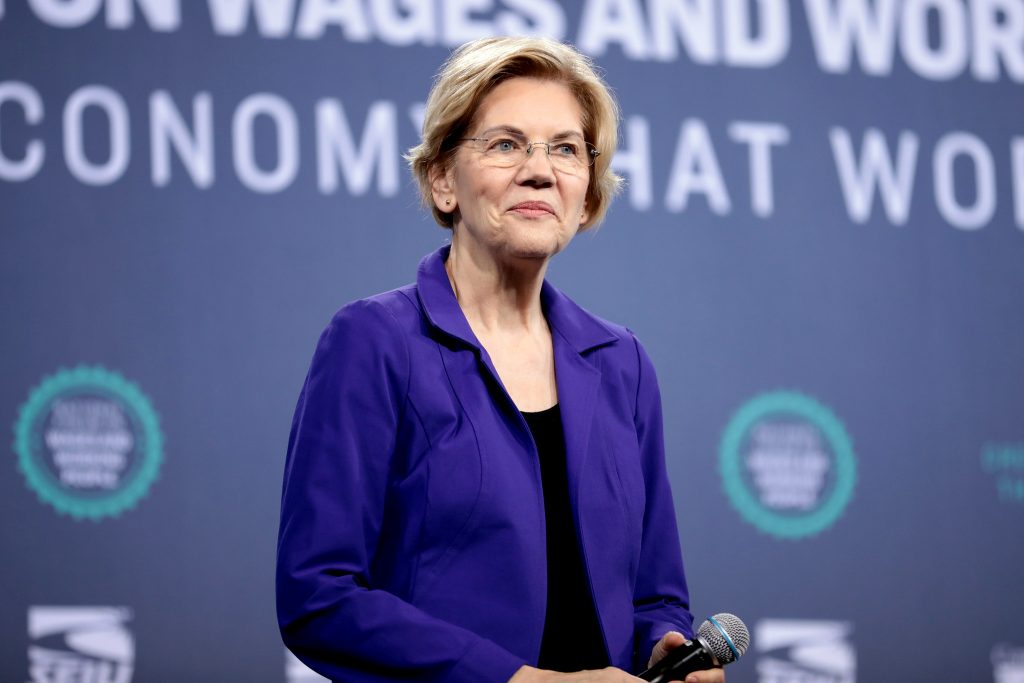US Democrats: Who holds the key to reverse Trump’s climate catastrophe?

July 1st, 2019
During a speech earlier this month, Irish President Michael D Higgins called US President Trump’s decision to take the US out of the Paris Agreement a “regressive and pernicious decision” and urged Trump to reconsider his course of action.
While Trump may show no signs of heeding that call, several Democratic candidates agree with President Higgin’s assertion. If elected, many vow to re-enter the Agreement on day one of their presidency.
The path to the White House for the Democratic contenders is a long one. The first set of primary debates took place last week, and ten more will be held before the end of the calendar year.
From early 2020 all the way through to the summer, each state will cast their vote for a democratic candidate, and in July, a nominee will be officially named at the Democratic National Convention.
And while the current Democratic primary contenders – all twenty of them – agree that climate change is a pressing issue that needs to be addressed, individual policies indicate in-party discord on how to go about it.
So, in the wake of the first debates, our resident American, Kayle Crosson, has taken a look at the leading candidates’ environmental positions as they battle it out for the right to challenge for the leadership of one of the world’s largest greenhouse gas emitters.
Here’s what she found.
Joe Biden
Former Obama administration Vice President Joe Biden is the current democratic frontrunner polling at 33 per cent according to FiveThirtyEight.
On his campaign website, Biden has laid out his “Clean Energy Revolution” plan that intends to have national net-zero emissions no later than 2050, a target that he proposes be held to an enforcement mechanism.
If elected, Biden promises to allocate $1.7 trillion to climate change over the next ten years and plans to finance the investment by reversing the Trump tax cut.
Actual emission reduction initiatives under this plan would include requiring aggressive methane pollution limits for new and existing oil and gas operations, improving building efficiency, implementing the Clean Air Act, and protecting biodiversity.
The plan, Biden emphasizes, also embraces the framework of the Green New Deal, an overhauling proposed piece of legislation that would decarbonize the US economy, provide a federal job guarantee and address systemic inequalities.

Bernie Sanders
Coming in at 19 per cent in the polls is the Vermont senator and former presidential candidate Bernie Sanders, a long-time vocal proponent of climate legislation.
In his first year in the Senate, Sanders introduced a national energy efficiency grant programme that passed in 2007, and successfully managed to have $3.2 billion of funding for it included in the 2009 Obama administration economic recovery package.
Sanders fully embraces a Green New Deal, and advocates for infrastructure investment and protection of climate-vulnerable communities.
If elected, Sanders would ban fracking and new fossil fuel infrastructure and would end coal, natural gas, and crude oil exports. He also intends to reduce transport emissions through electric vehicles, high-speed passenger rail, and public transport.
Kamala Harris
Former prosecutor and senator from California, Kamala Harris had a noted stand-out debate performance last week but has remained relatively vague in terms of specific climate proposals.
Last Thursday, she openly endorsed the Green New Deal on stage during the debate but has yet to lay out detailed policy. She was also a co-sponsor of the Green New Deal resolution when it first came into being.
During her time as San Francisco’s district attorney, she created an environmental justice unit and in 2016 expressed support of an investigation into ExxonMobil, but did not take on the company.
According to Inside Climate News, she joined with five other senators in filing a brief in court on behalf of Oakland and San Francisco against fossil fuel companies for climate damages.

Elizabeth Warren
Currently tied in the polls with Kamala Harris at 12 per cent is Massachusetts Senator Elizabeth Warren.
In her final answer during last Wednesday’s debate, where she was deemed to have outperformed all the other candidates on the stage, she identified climate change as the greatest geopolitical threat to the United States.
In order to address that threat, Warren has developed a plan to combat rising greenhouse gas emissions through policies for public lands and decarbonizing the military and US manufacturing.
Warren has integrated the threat of climate change into different aspects of her political agenda, particularly in the realms of tackling corruption.
A Warren campaign spokesperson told Vox that in order to “get serious” about climate change, the economic and political power of “Big Oil” must be reined in.
In her proposal, Warren would allocate $1.5 trillion for US-made low-carbon technology, create a Green Apollo Program to invest $400 billion in energy and development, and establish a Green Marshall Plan that would assist other countries in buying US clean energy technologies.
Pete Buttigieg
One of the campaign’s underdogs is Pete Buttigieg, the mayor of South Bend, Indiana, a city of just over 100,000. Yet, according to FiveThirtyEight, he is polling at around six per cent. As mayor, he set up an Office of Sustainability for the city.
He’s a proponent of the Green New Deal and proposes implementing it with “all available tools”, according to his campaign website, which includes a carbon tax-and-dividend.
In order to become a 100 per cent clean energy society, Buttigieg says that he would increase home energy efficiency, invest in retrofitting, strength rural climate resilience, and decarbonize transportation.
According to Inside Climate News, he also stated that he would favour a new fracking ban and would like to bring an accelerated end to existing fracking.
Cory Booker
New Jersey Senator Cory Booker also identified climate change as the greatest geopolitical threat facing the United States during the first debate, and as it stands, is polling at three per cent nationally.
As a Green New Deal supporter, Booker’s environmental platform would include put a moratorium on public land drilling and “hold polluters accountable.”
He would also establish an Environmental Justice Office and the External Civil Rights Enforcement Office, as well as increasing taxes on chemical and oil companies.
Beto O’Rourke
Taking on Republican incumbent Ted Cruz in the 2018 Senate Race, former US Representative Beto O’Rourke came close to winning in his home Republican state of Texas, losing by less than three percentage points.
As it stands, O’Rourke is polling at three per cent as a presidential candidate. Joining Warren and Booker, O’Rourke also labeled climate change as the greatest geopolitical threat facing the country today.
O’Rourke launched a climate plan earlier this year, which included reduced methane leakage and the rapid phase-out of the use of hydrofluorocarbons.
He also set out a 2030 net-zero emissions carbon budget for federal lands in his roadmap, as well as committing to mobilizing $5 trillion in funding for climate change. He intends to reach net zero emissions by 2050, and would, if elected, get halfway there by 2030.
However, as the environmental news outlet Grist pointed out, during his Senate campaign O’Rourke identified fracking as being “fundamental” to national security and was one of the few House Democrats to vote in favour of lifting an oil export ban in 2015.
[x_author title=”About the Author”]







